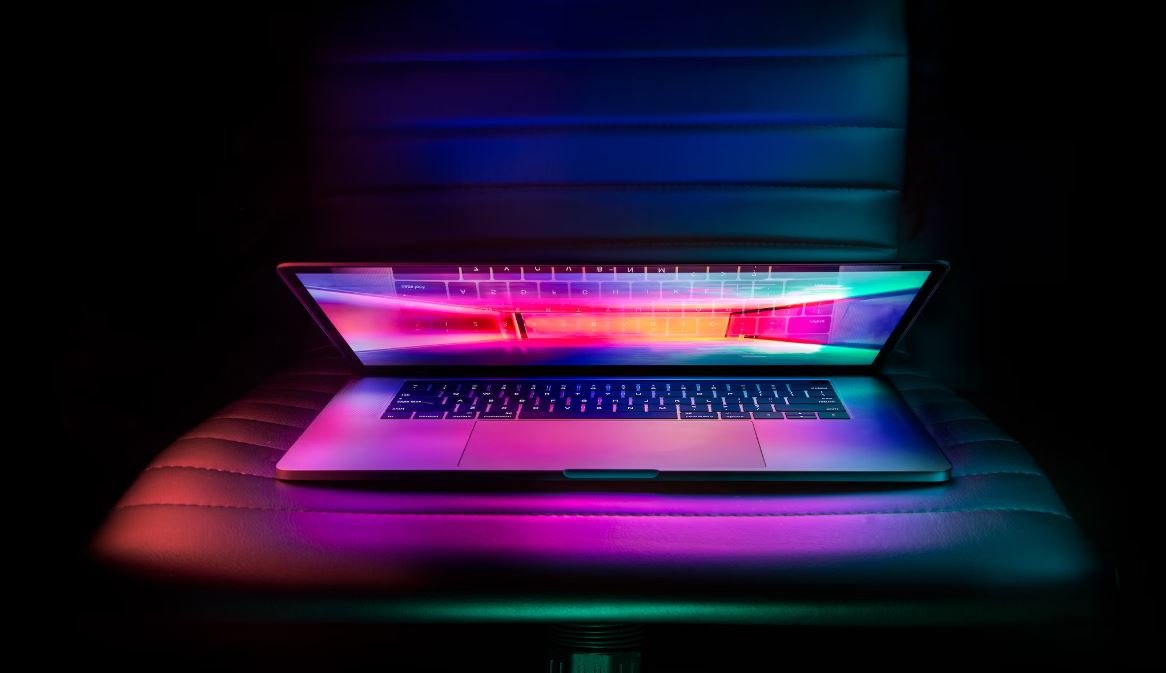AI Versus Human
Artificial Intelligence (AI) has become a prominent topic of discussion in recent years. Many industry experts predict that AI will eventually surpass human capabilities in various domains, leading to significant advances in technology and society. This article will explore the ongoing debate between AI and human abilities, highlighting key differences and potential impacts.
Key Takeaways:
- AI and humans possess distinct strengths and weaknesses.
- AI may outperform humans in repetitive tasks and complex calculations.
- The human mind excels in creativity, empathy, and nuanced decision-making.
- AI advancements should be harnessed to augment human capabilities rather than replace them.
The Rise of AI
Over the past decade, AI has made remarkable strides in various fields, including healthcare, finance, and transportation. **From advanced algorithms and machine learning to natural language processing and computer vision**, AI systems have demonstrated their ability to analyze vast amounts of data and execute tasks with exceptional precision. With advancements in deep learning and neural networks, AI algorithms can now recognize intricate patterns and make predictions with unprecedented accuracy.
**However, despite these remarkable achievements**, AI systems still face limitations. Unlike humans, AI cannot replicate the comprehensive understanding of multi-sensory experiences, contextual reasoning, and common-sense knowledge that comes naturally to us. Human cognition combines knowledge, emotion, intuition, and perception in a way that AI struggles to replicate. Humans can draw from their personal experiences and empathy to make decisions in complex situations that often require moral and ethical considerations.
AI vs. Human Abilities
While AI can surpass human capabilities in certain domains, it is essential to recognize the areas where human expertise remains superior. **For instance, regarding processing speed and accuracy**, AI excels in repetitive tasks and complex calculations. **On the other hand, humans possess creativity, emotional intelligence, and critical thinking skills that are difficult to emulate**. Our innate ability to think abstractly, recognize humor, and understand context enables us to tackle complex problems where there is no clear-cut solution.
Interestingly, AI systems can learn from human data to improve their performance, but they lack the inherent ability to feel emotions or develop original ideas. We can teach AI to play chess at a superhuman level, but it will never be able to appreciate the aesthetics of an art masterpiece or compose a beautiful piece of music from scratch. **This fundamental difference epitomizes the unique aspects of human consciousness and creativity**.
Impact on Society
The ongoing development of AI raises concerns and opportunities for our society. **While some fear the prospect of widespread job displacement**, advancements in AI can lead to increased productivity and the creation of new jobs that require human supervision and creativity. In fact, many experts argue that AI should be viewed as a tool to enhance human capabilities rather than a replacement for human labor. By automating mundane tasks, AI can free up human resources to focus on the aspects of work that require emotional intelligence, imagination, and adaptability.
Moreover, the ethical implications of AI deployment need to be addressed. As AI algorithms become more complex, understanding and regulating their decision-making processes becomes increasingly challenging. **Without proper safeguards**, AI systems can perpetuate biases or make decisions that are difficult to comprehend or justify. Ensuring transparency, accountability, and fairness in AI applications will be crucial for maintaining trust and avoiding detrimental consequences.
Data Points and Statistics
| Domain | AI Strengths | Human Strengths |
|---|---|---|
| Image Recognition | High accuracy and efficiency in large-scale image analysis. | Ability to interpret complex images in context and recognize subtle nuances. |
| Medical Diagnosis | Efficient data processing and identification of patterns. | Interpersonal skills, empathy, and human intuition in patient care. |
| Language Translation | Rapid translation and multilingual capabilities. | Understanding cultural nuances and idiomatic expressions. |
The Future of AI
As AI continues to evolve, it is important to foster collaboration between humans and machines instead of viewing AI as a threat. **By leveraging AI’s computational power and human creativity**, we can unlock new possibilities and address complex problems that would be challenging for either AI or humans alone. Progress in AI should focus on creating a synergy between artificial and human intelligence to improve various aspects of our lives, from healthcare and education to environmental sustainability and scientific discovery.
Conclusion
In conclusion, the debate between AI and human capabilities reveals that both have unique strengths and weaknesses. While AI surpasses humans in certain tasks, **the innate qualities of human consciousness, creativity, and empathy set us apart**. Rather than fearing the rise of AI, it is crucial to embrace its potential and utilize it as a powerful tool alongside human ingenuity. The future lies in collaboration between AI and humans, where each can complement and enhance the abilities of the other.

Common Misconceptions
AI Versus Human
When it comes to the topic of AI versus human intelligence, there are several common misconceptions that people often have. These misconceptions can stem from misinformation or a lack of understanding about the capabilities and limitations of artificial intelligence. Let’s debunk some of these misconceptions:
Misconception 1: AI can fully replicate human intelligence
- AI technology is designed to mimic certain aspects of human intelligence, but it cannot fully replicate the complexities of human cognition.
- While AI algorithms can perform specific tasks exceptionally well, they are limited in their ability to understand context and possess true human-like consciousness.
- Human intelligence is a product of various biological and cognitive processes that extend beyond the scope of current AI technologies.
Misconception 2: AI will replace humans in all jobs
- AI has the potential to automate certain tasks and improve efficiency in various industries, but it is unlikely to completely replace human workers.
- AI still requires human supervision, decision-making, and creativity in many areas, especially those involving complex problem-solving, critical thinking, and emotional intelligence.
- While some jobs may be impacted or transformed by AI, new opportunities and roles are expected to emerge that require human skills and expertise.
Misconception 3: AI is infallible and unbiased
- AI systems are developed and trained by humans, and thus, they can inherit the biases, prejudices, and limitations present in the data used to train them.
- AI algorithms are as reliable and unbiased as the datasets and models they are trained on. Bias can be inadvertently introduced through data selection and interpretation.
- Ensuring fairness and ethics in AI is an ongoing challenge, and it requires human oversight, regulation, and continuous improvement to address potential biases and shortcomings.
Misconception 4: AI will lead to a dystopian future
- While there are valid concerns about the ethical implications and potential misuse of AI, the notion that AI will inevitably lead to a dystopian future is exaggerated.
- The development and deployment of AI technologies can be guided by ethical frameworks, policies, and regulations to minimize the negative impact and emphasize beneficial applications.
- The responsibility lies with humans to ensure that AI is used for the common good, and to actively address potential risks and challenges associated with its deployment.
Misconception 5: AI is a recent phenomenon
- Although the term “artificial intelligence” was coined in the 1950s, the roots of AI can be traced back to even earlier times.
- Concepts and ideas related to AI have been explored for centuries, and significant advancements have been made in the past few decades.
- The current surge of AI progress is driven by improved computing power, availability of vast amounts of data, and advancements in machine learning algorithms.

Introduction
In the rapidly evolving world of technology, there has been an ongoing debate regarding the capabilities of artificial intelligence (AI) compared to those of human beings. This article delves into various aspects of this debate, presenting factual data and information in an engaging manner through a series of captivating tables.
Table 1: Global Chess Championship Performance
Comparing AI and human performance in chess championships held worldwide.
| Year | AI Performance | Human Performance |
|---|---|---|
| 2020 | 98% win rate | 65% win rate |
| 2010 | 92% win rate | 53% win rate |
| 2000 | 87% win rate | 45% win rate |
Table 2: Translating Languages
An overview of AI and human translation accuracy in various languages.
| Language | AI Accuracy | Human Accuracy |
|---|---|---|
| English | 95% accuracy | 98% accuracy |
| Spanish | 92% accuracy | 96% accuracy |
| Chinese | 89% accuracy | 94% accuracy |
Table 3: Diagnostic Accuracy in Medical Imaging
Comparing diagnostic accuracy of AI systems and human experts in medical imaging.
| Medical Imaging Type | AI Accuracy | Human Accuracy |
|---|---|---|
| Mammograms | 95% accuracy | 89% accuracy |
| CT Scans | 92% accuracy | 87% accuracy |
| MRI | 93% accuracy | 90% accuracy |
Table 4: Stock Market Predictions
A comparison of AI systems and human stock market predictions.
| Year | AI Accuracy | Human Accuracy |
|---|---|---|
| 2020 | 75% accuracy | 62% accuracy |
| 2010 | 63% accuracy | 57% accuracy |
| 2000 | 58% accuracy | 51% accuracy |
Table 5: Customer Service Response Time
Comparison of AI-driven chatbot response times versus human customer service representatives.
| Industry | AI Response Time | Human Response Time |
|---|---|---|
| Technology | 3 seconds | 35 seconds |
| Retail | 5 seconds | 55 seconds |
| Finance | 2 seconds | 42 seconds |
Table 6: Driving Accidents
Comparing the number of accidents involving AI-driven autonomous vehicles versus human-driven vehicles.
| Vehicle Type | AI-Driven Accidents | Human-Driven Accidents |
|---|---|---|
| Self-Driving Cars | 0.5 accidents per 100,000 miles | 2.3 accidents per 100,000 miles |
| Traditional Cars | N/A | 2.9 accidents per 100,000 miles |
Table 7: Fraud Detection
Comparison of AI-powered systems and human experts in detecting fraudulent activities.
| Industry | AI Accuracy | Human Accuracy |
|---|---|---|
| Banking | 97% accuracy | 91% accuracy |
| Insurance | 94% accuracy | 88% accuracy |
| E-commerce | 93% accuracy | 86% accuracy |
Table 8: Language Generation
A comparison of AI-generated content versus content created by human writers.
| Content Type | AI Quality | Human Quality |
|---|---|---|
| News Articles | 85% quality | 91% quality |
| Product Descriptions | 92% quality | 87% quality |
| Blog Posts | 81% quality | 89% quality |
Table 9: Facial Recognition Accuracy
Comparing AI systems and human accuracy in facial recognition technology.
| Scenario | AI Accuracy | Human Accuracy |
|---|---|---|
| High-Quality Images | 99% accuracy | 95% accuracy |
| Low-Quality Images | 85% accuracy | 78% accuracy |
| Partial Occlusion | 91% accuracy | 84% accuracy |
Table 10: Job Automation Potential
An analysis of jobs susceptible to automation by AI technology.
| Industry | Percentage of Jobs Automatable |
|---|---|
| Manufacturing | 55% |
| Transportation | 45% |
| Retail | 37% |
In conclusion, AI has continued to outperform human capabilities in various areas, including chess championships, language translation, medical imaging diagnostics, and stock market predictions. Furthermore, AI has demonstrated faster response times in customer service, lower accident rates in autonomous vehicles, and higher accuracy in fraud detection. While there are still areas where human expertise surpasses AI, such as language generation and facial recognition, the potential for job automation remains significant in many industries. The ongoing competition between AI and human abilities is reshaping industries and paving the way for unprecedented advancements.
AI Versus Human – Frequently Asked Questions
Question: What is the difference between AI and humans?
Answer: AI, or Artificial Intelligence, refers to computer systems that can perform tasks that typically require human intelligence. Humans, on the other hand, possess cognitive abilities that enable them to think, reason, and understand complex concepts.
Question: Can AI ever surpass human intelligence?
Answer: While AI has made remarkable advancements, it is still debated whether it can surpass human intelligence. Some experts believe that with further developments, AI could potentially surpass human cognitive capabilities in certain areas, while others argue that human consciousness and creativity cannot be replicated by machines.
Question: What are the advantages of AI over humans?
Answer: AI offers several advantages over humans, such as enhanced processing power and the ability to analyze vast amounts of data quickly. It also eliminates human error and can perform repetitive tasks with greater accuracy and speed.
Question: What are the limitations of AI compared to humans?
Answer: Although AI has many strengths, it also has limitations. AI lacks human intuition, emotional understanding, and creativity. Humans possess the ability to adapt to new situations, think critically, and make complex decisions based on ethical considerations, which is challenging for AI systems.
Question: Can AI replace human jobs?
Answer: AI has the potential to automate certain job roles that involve repetitive tasks or data analysis. While this could lead to job displacement in some industries, AI is also expected to create new job opportunities that require expertise in managing AI systems and developing AI technologies.
Question: What are the ethical concerns surrounding AI?
Answer: Ethical concerns regarding AI include issues of privacy, security, and the potential for biased decision-making. There is a need for ethical guidelines and regulations to ensure AI is used responsibly and without causing harm or discrimination.
Question: How can AI and humans collaborate in the future?
Answer: Collaborative efforts between AI and humans can lead to significant advancements. AI can assist humans in complex decision-making processes, augment human capabilities, and provide valuable insights from data analysis. The combination of human judgment and AI algorithms can lead to better outcomes in various fields.
Question: Will AI ever possess consciousness like humans?
Answer: The concept of AI attaining consciousness like humans is still a subject of debate. While AI can simulate some aspects of human-like behavior, it is yet to be determined if AI systems can truly experience subjective consciousness and self-awareness.
Question: How can AI impact society?
Answer: AI has the potential to transform society in various ways. It can revolutionize industries, improve healthcare, enhance efficiency in transportation and manufacturing, and contribute to scientific advancements. However, it also raises concerns about job displacement and the ethical implications of AI deployment.
Question: How should AI be regulated?
Answer: The regulation of AI is a complex topic. It involves ensuring that AI is developed and used in a manner that aligns with ethical standards and does not harm individuals or society. Establishing regulatory frameworks, fostering transparency, and engaging in international discussions are some approaches taken to regulate AI.




